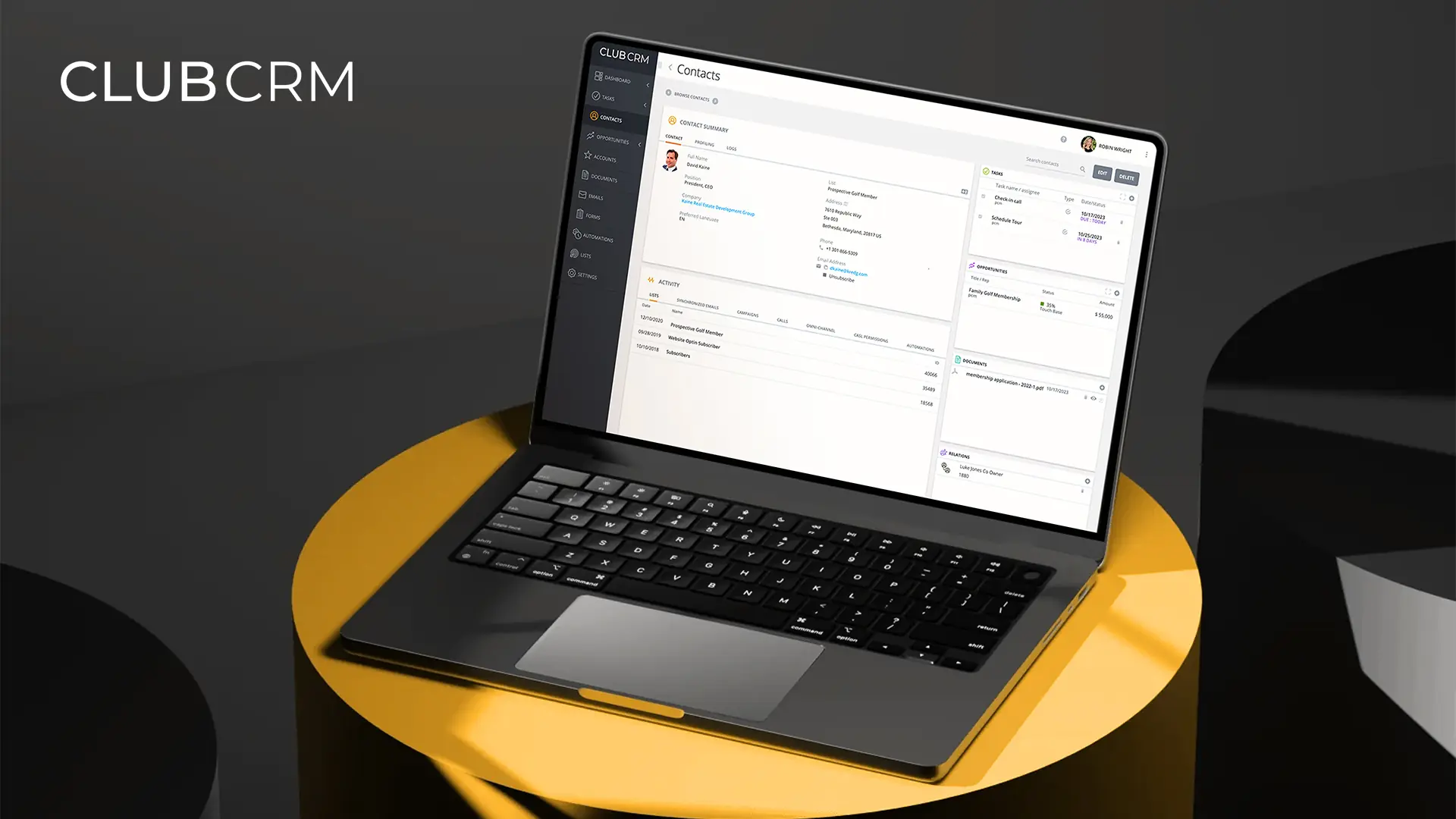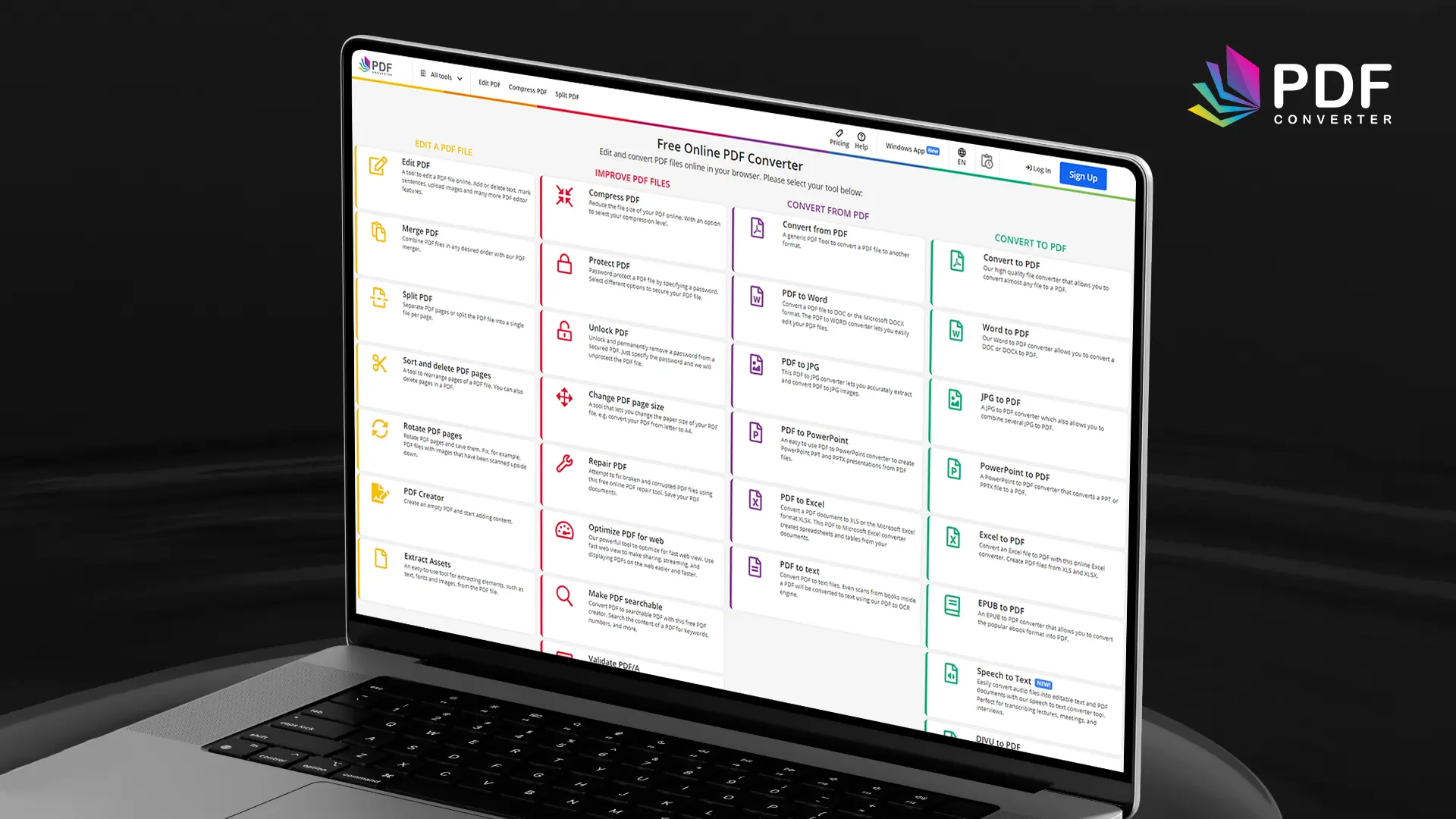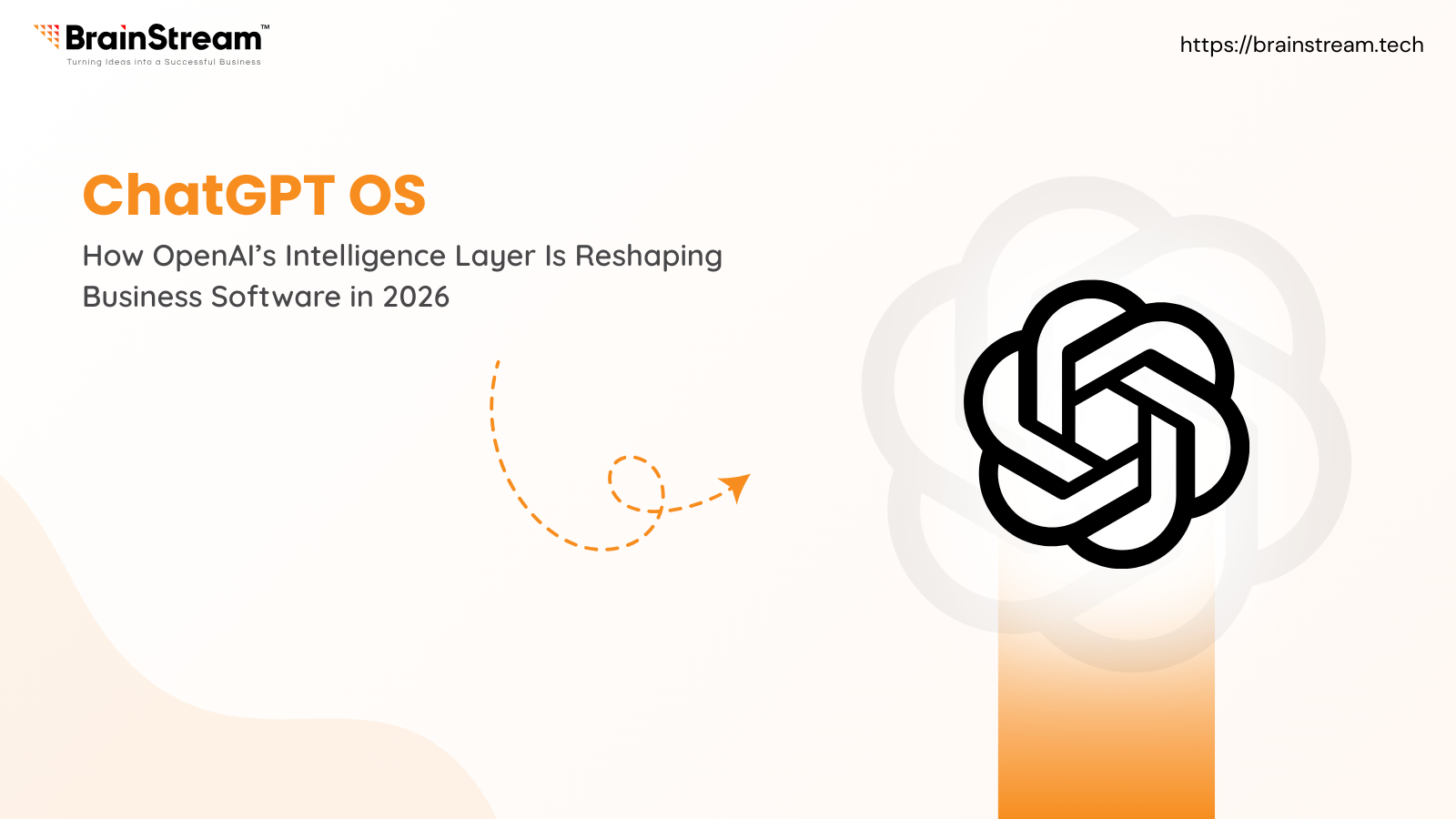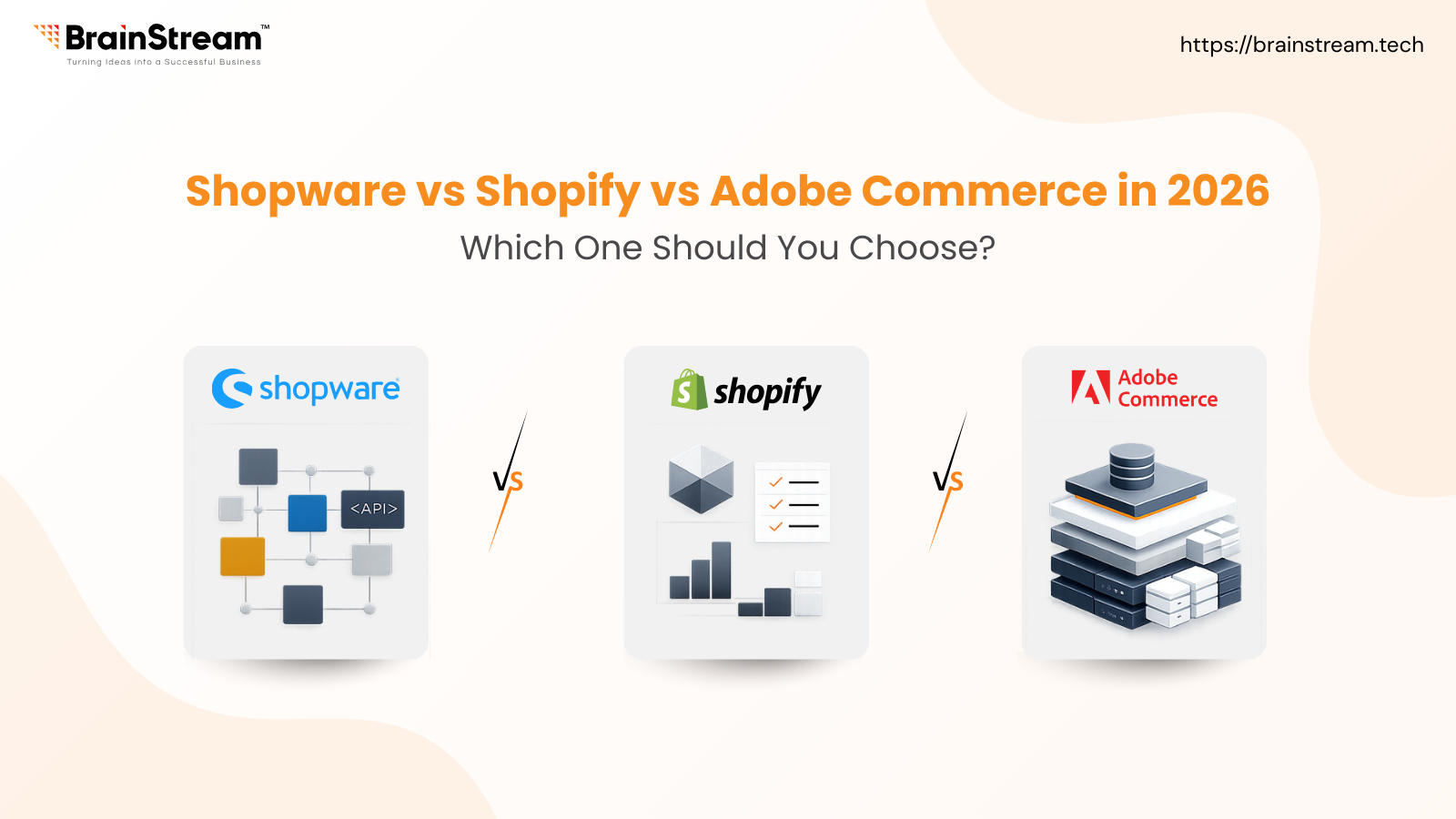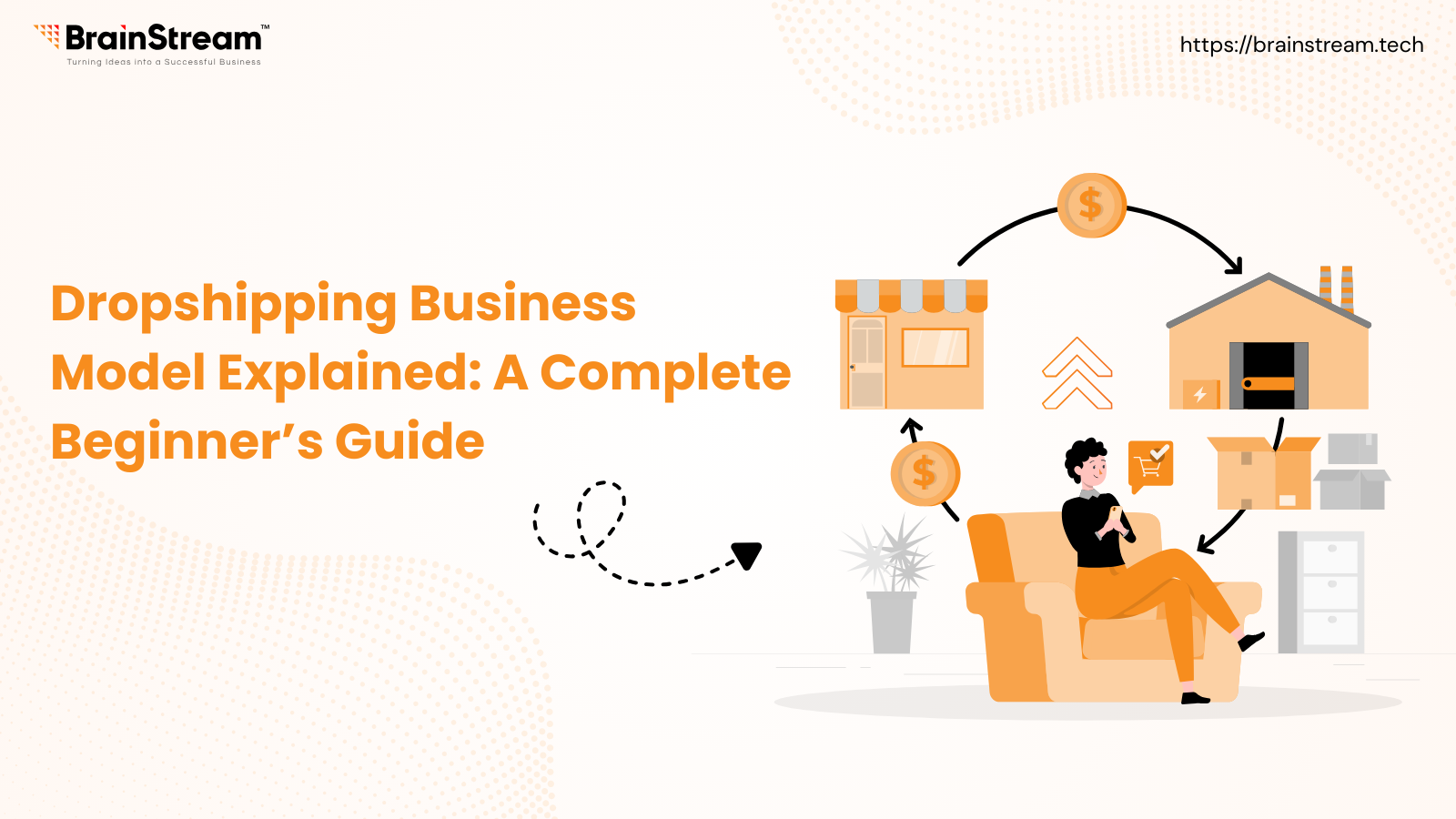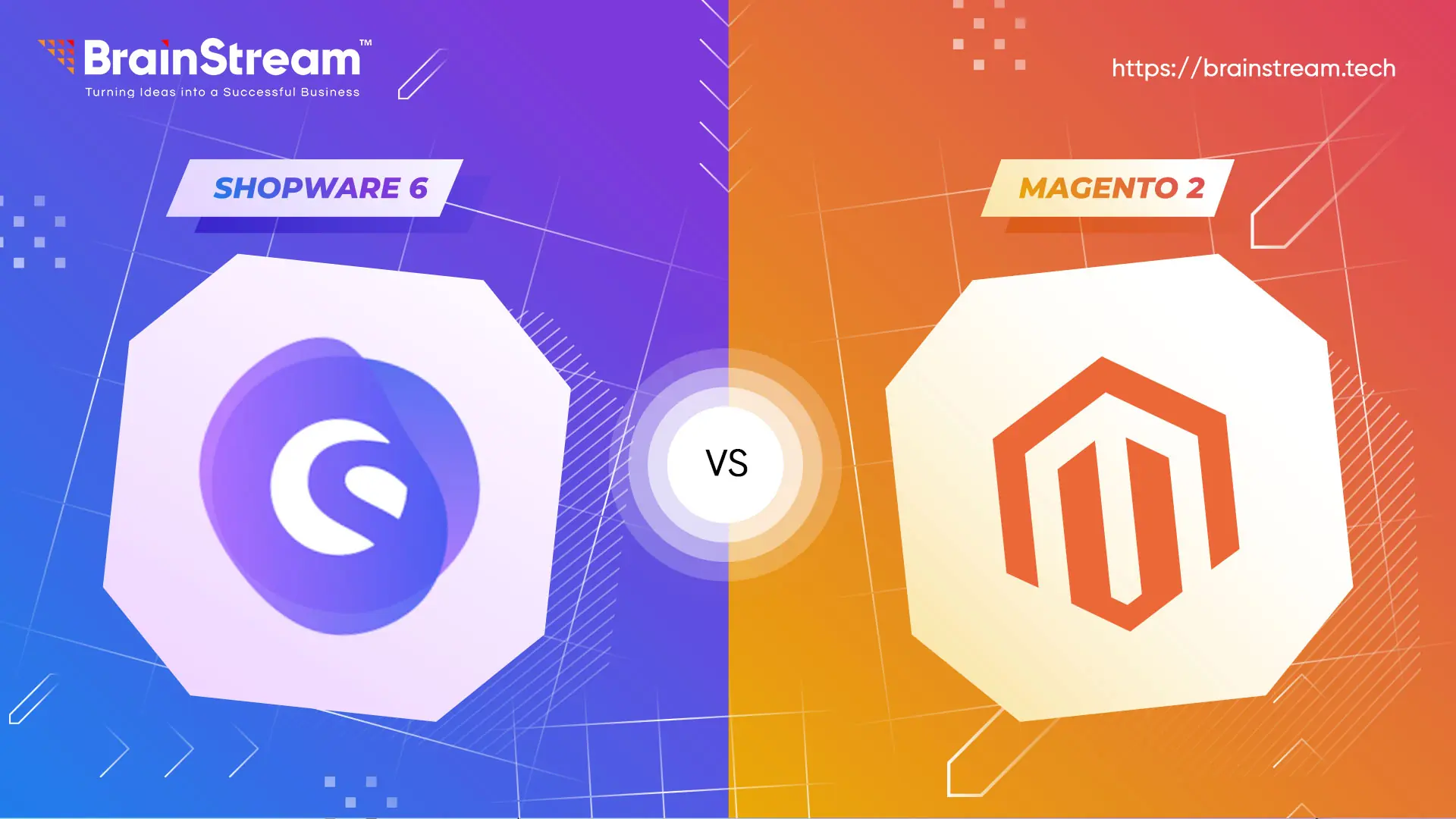
Summary:
The global market is currently witnessing a boom in e-commerce. Two widely-used e-commerce platforms for building and managing online stores are Shopware vs Magento.
February 9, 2023
In comparison to a physical store, an e-commerce site provides the advantage of offering products 24/7 to a global audience with lower expenses. The abundance of e-commerce CMS options, however, can make the decision-making process complicated. In this post, we’ll examine two of the most attractive e-commerce CMS solutions in the market: Shopware6 vs Magento2.
Brainstream Technolabs has extensive e-commerce development experience, including expertise in Shopware vs Magento. We have selected critical criteria to help you make an informed decision.
Ready? Let’s move to the next one!
Shopware 6 vs Magento 2: an overview
Shopware is an open-source e-commerce platform enabling businesses to build and run online stores. The latest version, Shopware 6.4, was released in 2022 and features a modern, user-friendly interface, improved speed and scalability, and a flexible modular design.
Shopware 6 prioritizes user-friendliness for both merchants and developers, offering a wide range of features and tools for developing and managing online businesses. With its headless architecture, it provides increased performance and flexibility, allowing you to use any frontend framework or technology.
The primary features include a versatile product catalog, customizable checkout process, integration with multiple payment and shipping providers, various marketing and SEO tools. It also offers a variety of templates and themes, and a marketplace for plugins and extensions to improve your online store’s functionality.
Overall, Shopware 6 is an outstanding option for companies looking for a modern, user-friendly, and scalable e-commerce platform.
Magento 2.4 is the latest version of the Magento e-commerce platform, released in 2022. It offers improvements over its predecessor, including enhanced performance, scalability, security, and a more user-friendly and modern user interface.
It has a strong community and marketplace for extensions and modifications, and a comprehensive set of tools for managing products, orders, customers, and other aspects of an online store. Magento 2 places a significant focus on customization and integration, with a flexible design and multiple APIs for connecting with other systems.
Overall, Magento 2 is a robust and versatile e-commerce platform that can be used to create and manage complex online stores. With its focus on customization and integration, it is an ideal choice for businesses looking for a platform that can be tailored to their specific needs.
Shopware 6 vs Magento 2: Comparison
Both Shopware 6 vs Magento 2 are open-source e-commerce platforms used to create and manage online stores. Here’s a side-by-side comparison of the two platforms:
1. Performance and Scalability
Shopware 6 vs Magento 2 are both designed for high performance and scalability. However, Shopware 6 has a built-in headless architecture, which provides improved performance and adaptability.
2. User-Friendliness
When compared to Magento 2, Shopware 6 offers a more modern and user-friendly interface, making it easier for merchants to operate their online store.
3. Customisation
With its flexible design and various APIs for connecting with other systems, Magento 2 places a strong emphasis on customization and integration. While Shopware 6 also offers a good level of customization, it may be easier to achieve with Magento 2.
4. Community and Marketplace
Magento 2 has a large community and marketplace for extensions and modifications, whereas Shopware 6 features a marketplace for plugins and extensions.
5. Templates and Themes
Shopware 6 vs Magento 2, both have a range of templates and themes to choose from; however, Shopware 6 offers a smaller selection.
6. Product Catalog Management
Both platforms offer flexible product catalog management, but Shopware 6 may be easier to use.
7. Checkout and Payment Processes
Both platforms offer configurable checkout and payment processes, although Magento 2 may have a wider selection of available payment methods.
8. Marketing and SEO Tools
Both Shopware 6 vs Magento 2 have marketing and SEO tools, although Magento 2 may have a broader selection of options in this category.
9. Cost
The cost of using Shopware 6 or Magento 2 is determined by various factors, such as the size and complexity of your online business, the extent of customization and integration needed, and the hosting and support options that are chosen.
Both Shopware 6 vs Magento 2 offer a free community version as well as commercial business and cloud editions. The cost of the commercial and cloud versions varies depending on the features and functionalities desired, but it is typically in the hundreds to thousands of euros per year for Shopware 6.
The cost of the commercial and cloud editions for Magento 2 also varies based on the size and complexity of your online store.
Overall, the cost of utilizing either Shopware 6 or Magento 2 can range widely based on your specific needs, but both platforms entail a considerable investment of time, money, and resources to establish and maintain a thriving online store.
Key Features
Here are some of the key features of Shopware 6 or Magento 2:
| Shopware 6 | Magento 2 |
| User-friendly and modern frontend design | User-friendly admin interface |
| Intuitive and customizable backend | Responsive and customizable design |
| Built-in SEO and marketing tools | Robust catalog management |
| Multi-channel sales capabilities | Advanced search and navigation |
| Streamlined checkout and payment process | Multi-store support |
| Strong security features | Seamless checkout process |
| Extensive API and platform integrations | Extensive third-party integrations |
| Active community and marketplace of plugins | Advanced shipping and tax management |
| Scalable and flexible architecture | Comprehensive reporting and analytics |
| Robust reporting and analytics tools | Comprehensive payment options |
Conclusion
Shopware 6 vs Magento 2 are both robust e-commerce platforms that offer a wide range of features for successful online store management, including advanced product management, SEO, mobile responsiveness, multichannel support, and customer engagement.
The choice between Shopware 6 vs Magento 2 ultimately depends on the specific needs and requirements of each merchant. Smaller businesses or those seeking a user-friendly interface may prefer Shopware 6, while larger businesses or those needing a highly customizable platform with a wider range of features and extensions may choose Magento 2.
Let’s discuss whether you are searching for a solution for your e-store using either Magento or Shopware.
FAQ
Short answers to common SMB questions about Shopware 6 vs Magento 2.
1. Which is better for small-to-medium businesses, Shopware 6 or Magento 2?
Ans: For many SMBs, Shopware 6 is faster to implement and easier to manage day-to-day. Magento 2 delivers more customization but usually requires larger development resources and longer setup/maintenance.
2. Is Magento 2 more scalable than Shopware 6?
Ans: Magento (Adobe Commerce) has a long history of powering enterprise-scale stores and is extremely scalable. Shopware 6 is also scalable, but often chosen for faster time-to-market.
3. How much does it cost to build on Shopware vs Magento?
Ans: Shopware generally has lower implementation and maintenance costs. Magento costs rise with customization, integrations, and enterprise licensing.
4. Can I migrate from Magento to Shopware (or vice versa)?
Ans: Yes, migration tools and agencies exist. Plan for product mapping, URL redirects, data validation, and testing.
Related Blog
eCommerce Development
Shopware vs Shopify vs Adobe Commerce in 2026: Which One Should You Choose?
Shopware vs Shopify vs Adobe Commerce - Choosing the right eCommerce platform in 2026 is no longer just a technical decision; it’s a strategic growth decision. Whether you're a founder scaling a D2C brand, a CTO planning international expansion, or...
eCommerce Development
Top 5 Proven Seasonal Discount Tactics to Boost Your eCommerce Sales
Every eCommerce brand looks forward to seasonal spikes in sales. However, reducing prices simply because competitors are doing the same can quickly lead to a pricing war, where margins shrink and no one truly benefits. Seasonal discount pricing, when planned...
eCommerce Development
Dropshipping Business Model Explained: A Complete Beginner’s Guide
Welcome to this easy-to-understand guide on dropshipping, a popular and flexible way to start an online business without following traditional retail methods. In the digital age, dropshipping allows you to launch an eCommerce store without stocking or handling products yourself....

Keep up-to-date with our newsletter.
Sign up for our newsletter to receive weekly updates and news directly to your inbox.
